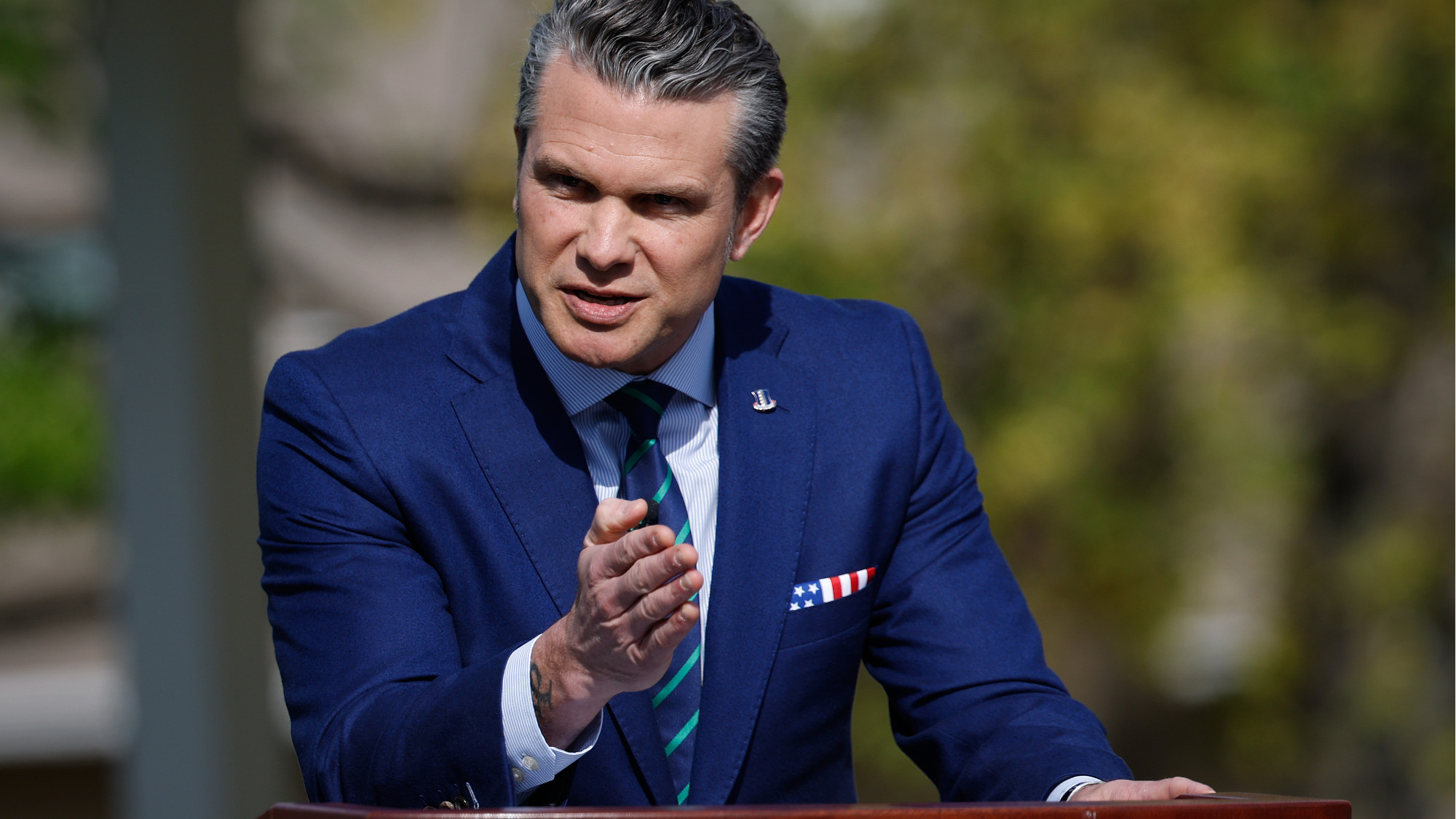Mitch McConnell is the GOAT
The Senate minority leader wins his Tampa Bay NFC championship


A free daily email with the biggest news stories of the day – and the best features from TheWeek.com
You are now subscribed
Your newsletter sign-up was successful
Two weeks before Tom Brady makes his 10th Super Bowl start, it is time to face facts. Even those of us who believe that Bill Belichick deserves most of the credit for the Patriots dynasty have to admit that the fifth best quarterback in Michigan football history played his part. Maybe Belichick could have done it with a different guy, but the fact of the matter is that he didn't. Meanwhile, despite his limited arm strength and athletic ability and his cult-like fad dieting, and with help from great defenses, Brady has accomplished more at the highest level than any signal caller in NFL history. At a certain point, you can't argue with the résumé.
What about Mitch McConnell, my own nominee for GOAT in his respective field? I think there is a good case to be made that Cocaine Mitch is the most accomplished Senate leader his party has had since the introduction of the modern majority and minority system roughly a century ago.
On one reading, McConnell won one of his greatest late-career victories — his Tampa Bay NFC championship, you might say — on Tuesday. Facing a de facto Democratic majority with Kamala Harris as the tie-breaking vote, there was every reason to believe that the era of the filibuster would be over. Suddenly statehood for Washington, D.C., and Puerto Rico, court packing, and even an attempt at codifying Roe v. Wade would have become very real possibilities. Instead, with virtually zero concessions offered in return, two key Democrats joined with President Biden (who had made his feeling known last Friday) in agreeing that McConnell should have the power to obstruct any sweeping legislative action in the upper chamber. In response, McConnell graciously admitted that the GOP does not, in fact, have to share control of Senate committees with the party that is actually in charge. Very big of him!
The Week
Escape your echo chamber. Get the facts behind the news, plus analysis from multiple perspectives.

Sign up for The Week's Free Newsletters
From our morning news briefing to a weekly Good News Newsletter, get the best of The Week delivered directly to your inbox.
From our morning news briefing to a weekly Good News Newsletter, get the best of The Week delivered directly to your inbox.
Coming as it did following the defeat of his party's incumbent president and the loss of his narrow majority in two special elections in the Deep South, amid the atmosphere of recrimination in the weeks after the Capitol Hill riot, there is something beautiful about this: the old gunslinger rallying his boys at their own one yard line and driving them down the field to keep the team's hopes alive in overtime. Just as he played Donald Trump for three Supreme Court justices and a tax cut, here he is convincing Democrats to let him have veto power over what happens in the upper chamber for years to come. (Anyone who thinks the same scenario would have played out if Trump had been re-elected but Republicans still faced a 50-50 split in the Senate is delusional: The filibuster would have gone the way of the fullback dive.)
Still, there is another sense in which McConnell probably deserves less credit than some observers are inclined to give him. How many of his Democratic colleagues actually wanted a filibuster-proof majority in the Senate? How many wanted to face their constituents' questions about banning fracking or adding additional seats to the Supreme Court or any of the other absurd positions they committed themselves to during last year's election? More to the point, how many of them would prefer the solemn responsibility of governing to four years of theatrical impeachment hearings and complaints about Republican obstruction?
This is the horrifying truth about American partisanship, the reason that the National Football League is vastly more entertaining than what goes on in Washington, D.C: almost no one there actually cares about winning. Holding on to office, getting the paychecks and the perks, receiving all the attention and adulation their parents and classmates apparently failed to shower upon them in their youth — these are what motivates most of our elected officials.
Which is why at the end of the day I am not hesitant to call McConnell the most effective Senate leader of the last half century, for the not very complicated reason that he not only cares about winning but does win more consistently than anyone else, regardless of the position in which he finds himself.
A free daily email with the biggest news stories of the day – and the best features from TheWeek.com
Matthew Walther is a national correspondent at The Week. His work has also appeared in First Things, The Spectator of London, The Catholic Herald, National Review, and other publications. He is currently writing a biography of the Rev. Montague Summers. He is also a Robert Novak Journalism Fellow.
-
 Labor secretary’s husband barred amid assault probe
Labor secretary’s husband barred amid assault probeSpeed Read Shawn DeRemer, the husband of Labor Secretary Lori Chavez-DeRemer, has been accused of sexual assault
-
 Trump touts pledges at 1st Board of Peace meeting
Trump touts pledges at 1st Board of Peace meetingSpeed Read At the inaugural meeting, the president announced nine countries have agreed to pledge a combined $7 billion for a Gaza relief package
-
 Britain’s ex-Prince Andrew arrested over Epstein ties
Britain’s ex-Prince Andrew arrested over Epstein tiesSpeed Read The younger brother of King Charles III has not yet been charged
-
 The billionaires’ wealth tax: a catastrophe for California?
The billionaires’ wealth tax: a catastrophe for California?Talking Point Peter Thiel and Larry Page preparing to change state residency
-
 Bari Weiss’ ‘60 Minutes’ scandal is about more than one report
Bari Weiss’ ‘60 Minutes’ scandal is about more than one reportIN THE SPOTLIGHT By blocking an approved segment on a controversial prison holding US deportees in El Salvador, the editor-in-chief of CBS News has become the main story
-
 Has Zohran Mamdani shown the Democrats how to win again?
Has Zohran Mamdani shown the Democrats how to win again?Today’s Big Question New York City mayoral election touted as victory for left-wing populists but moderate centrist wins elsewhere present more complex path for Democratic Party
-
 Millions turn out for anti-Trump ‘No Kings’ rallies
Millions turn out for anti-Trump ‘No Kings’ ralliesSpeed Read An estimated 7 million people participated, 2 million more than at the first ‘No Kings’ protest in June
-
 Ghislaine Maxwell: angling for a Trump pardon
Ghislaine Maxwell: angling for a Trump pardonTalking Point Convicted sex trafficker's testimony could shed new light on president's links to Jeffrey Epstein
-
 The last words and final moments of 40 presidents
The last words and final moments of 40 presidentsThe Explainer Some are eloquent quotes worthy of the holders of the highest office in the nation, and others... aren't
-
 A 'meltdown' at Hegseth's Pentagon
A 'meltdown' at Hegseth's PentagonFeature The Defense Secretary is fighting to keep his job amid leaked Signal chats and staff turmoil
-
 The JFK files: the truth at last?
The JFK files: the truth at last?In The Spotlight More than 64,000 previously classified documents relating the 1963 assassination of John F. Kennedy have been released by the Trump administration
